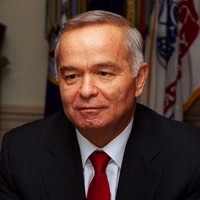Last month, I had the opportunity to spend a week in Uzbekistan meeting with government officials, think tank researchers, university faculty and other members of the country’s national security community. We shared frank assessments on Uzbekistan’s relations with Russia, China, Afghanistan and other neighboring countries, as well as with the United States.
Judging by the size of its population and the strength of its military, Uzbekistan is potentially the most powerful of the five Central Asian countries. In addition, its pivotal location bordering all the other Central Asian countries as well as Afghanistan give Uzbekistan great geopolitical and economic importance despite its being one of the few double-landlocked countries in the world.
Although Uzbekistan decided to leave the Moscow-led Collective Security Treaty Organization (CSTO) in late-June, Uzbekistani national security officials made it clear that they had no intention of ending ties with Russia. They repeatedly indicated that they will continue to work with Russia bilaterally and within the Commonwealth of Independent States and the Shanghai Cooperation Organization, both of which are less constraining multinational institutions than the CSTO. They expect that Uzbekistan’s security forces will continue to obtain most of their weapons from Russian firms and that, of those Uzbekistani military officers who study abroad, most will go to institutions in Moscow or other Russian cities. My Uzbekistani interlocutors also forecast that Russia will remain Uzbekistan’s largest trading partner and that Russian will remain the main foreign language of the Uzbekistani elite.

